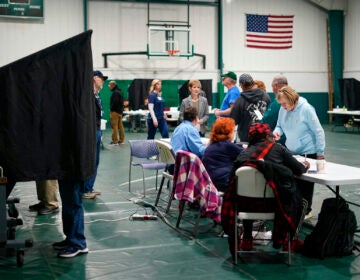Supreme Court speaks on Arizona immigration law – Get ready for more illegal immigration!
The mainstream media is getting this wrong. This was not a victory for Arizona Governor Brewer as she claims. Nor was it a defeat for the unions as they claim. Just look at how the liberal and conservative justices divided. Breyer, Ginsburg, and Sotomayor in the majority. Scalia, Thomas, and Alito in dissent. This was a big victory for the Obama administration (which I happen to regret).
The Supreme Court decision Monday means more illegal immigration tomorrow. For all those trying to decide whether or not to come to the U.S. in violation of our immigration laws, the risks and costs have just gone down, and the potential benefits have just increased. It would at least be intellectually coherent for Congress to repeal our immigration laws and welcome all who would like to come without numerical limitation. But the current policy of maintaining numerical limits on the books, but not enforcing those limits, and now prohibiting most state enforcement of those limits, simply makes no sense.
By rewarding and protecting illegal immigrants, U.S. policy slaps in the face the millions of qualified immigrants now waiting outside the U.S. for their chance to immigrate legally. They look like fools now, and their children will age out and not be allowed to immigrate with them if they ever get visas. Those who come illegally get the last laugh, their children get work authorization, and they hope eventually to get amnesty. Meanwhile, there’s minimal risk of immigration enforcement as long as they don’t commit crimes or threaten national security.
The Supreme Court today gave broad support to the Obama administration’s policy of prosecutorial discretion, or limited enforcement of U.S. immigration law. The court cited with approval the administration’s 2011 memo announcing a policy of prosecutorial discretion in immigration enforcement, basically limited to criminals and national security threats. The court noted that “a primary feature of the removal system is the broad discretion exercised by immigration officials.” Prosecutorial discretion is what underlies the recent administration decision to authorize work authorization for illegal immigrants who entered the U.S. before age 16.
The high court struck down most of Arizona’s effort to deal with illegal immigration despite recognizing studies estimating the unauthorized portion of its population at between 6% and 9%. One study cited by the court found that the 8.9% unauthorized portion of Arizona’s population was responsible for 21.8% of Arizona’s felony crimes. The high court stated that Arizona’s problems caused by illegal immigration must not be underestimated. But that did not prevent the court from ruling as it did to strike down Arizona’s best efforts at addressing its problems. The message to other states: No matter how bad it gets for you, you won’t be allowed to do what Arizona tried.
The court preserved a narrow window for state action to restrict illegal immigration. As determined last year in Whiting v. Chamber of Commerce, states can use licensing power to revoke the business licenses of employers who hire illegal immigrants without checking work authorization using the automated E-Verify procedure. This licensing power is also what the city of Hazleton, Pennsylvania, has tried to use in its anti-illegal immigration ordinances.
The court permitted to stand the portion of the Arizona statute requiring a determination of immigration status anytime a police officer makes a legal stop and has a reasonable suspicion that the stopped individual may be illegal. That provision also specified that anyone actually arrested should have an immigration status determination before release. The high court approved that provision only on condition that it not result in practice in prolonged detention. The reason why the government did not use the racial profiling argument to attack this provision is because the government concluded that the racial profiling argument is a loser. If it worked to strike this state provision, it could be used to strike federal immigration law provisions as well.
This procedure for a mandatory immigration status check upon reasonable suspicion after a legal stop is already standard operating procedure in many jurisdictions throughout the United States. Arizona put it in SB1070 only because certain Arizona “sanctuary city” jurisdictions were instructing their police NOT to do status checks despite reasonable suspicion.
While Justice Kennedy maintained his usual position as the key swing vote assigned to write the majority opinion, the position of Chief Justice Roberts in support of that opinion was surprising and curious. If the Chief Justice had instead voted with his fellow Republican appointees to the high court, that would not have made a difference in the main thrust of the court’s opinion striking the key provisions of SB1070. A 4-4 split, because Justice Kagen recused herself, would have left the lower court opinion in effect, striking all 4 of the challenged portions of SB1070.
Chief Justices feel responsible for the image of the court as a whole, and hate to have the court viewed as ineffective and its opinions without meaning. I suspect the Chief Justice offered to vote with the majority, creating a decisive 5-3 majority vote, provided the majority agreed to sustain at least one of the contested provisions of SB1070 requiring an immigration status check after a legal stop if the police officer has a reasonable suspicion that the individual is without legal status. And, of course, that is what the majority proceeded to do.
WHYY is your source for fact-based, in-depth journalism and information. As a nonprofit organization, we rely on financial support from readers like you. Please give today.




